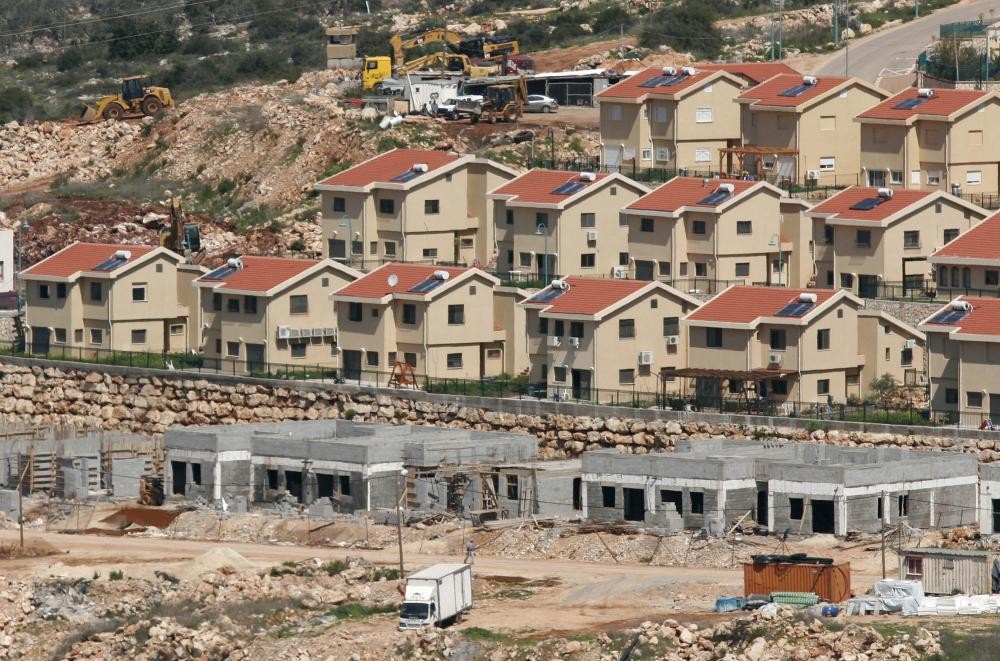The Palestinian Centre for Human Rights condemns the Israeli decision to build thousands of settlement units in the West Bank. This announcement coincided with the Israeli Supreme Court approved the displacement of hundreds of Palestinians from their lands in Hebron in consolidation of the apartheid regime imposed by Israel in the occupied Parisian territory (oPt) under international community silence.
In the latest development in Israel settlement expansion measures, Israel’s Civil Administration in the West Bank announced on Friday, 06 May 2022, that the sub-committee of the of Judea and Samaria Higher Planning Council is set to give its approval for planning and building 3,988 new settlement units in the meeting scheduled for next Thursday.
The committee meeting will be held after the Israeli Defense Minister, Benny Gantz, responded to settlers' demands to approve the construction of new settlement projects.
According to the Israeli Civil Administration's announcement, 1,452 housing units are expected to be approved for construction in the following settlements:
32 at Nokdim, 16 at Ma'aleh Adumim, 286 units at Kedumim, 90 at Dolev, 170 at Immanuel, 110 at Mevo Horon, 192 at Sha'are Tikvah, 500 units at the Elkana, and 56 at Negahot.
The announcement indicated that the final approval also includes 2,536 housing units in the following settlements: 364 for Dolev, 114 for Ma'aleh Michmash, 534 units for Shvuet Rachel, 168 for Neria, 136 for Givat Ze'ev, 40 for Efrat, 92 for Zofim, 64 for Revava, 107 for Tal Menashe, 761 for the Beitar Illit, and 156 for Kiryat Arba.
The approval of these settlement projects comes within the framework of political trade-offs between the far-right political parties in Israel to ensure the existence of the current government headed by Naftali Bennett, under the pretext that the Knesset members from Yamina party have required the approval of these projects in order to avoid resigning from the government coalition.
Moreover, the expected approval of settlement projects came in light of the support of Israeli Prime Minister Naftali Bennett for Jewish settlement crimes, as on 05 April 2022, he said during a visit to the security service’s regional command in in the West Bank: “Construction is ongoing and will continue in Judea and Samaria. Freezing will not be here.”
In addition to the settlement expansion scheme, on Thursday, 05 May 2022, the Israeli Supreme Court authorizes forcible expulsion of hundreds of Palestinians from their lands in Masafer Yatta in Hebron, and refused the petition submitted by 12 Palestinian residential compounds housing at least 2000 people against a 1980 military order that imposes a complete closure on Masafer Yatta area and declares that over 30,000 dunums designated as (Firing Zone 918), with no regard for it being an inhabited area
Upon this decision, the Israeli occupation forces (IOF) are allowed to take all the measures they deem appropriate, including military exercises under any designation, between Palestinians' houses and expel them from the area at any time.
In reality,, IOF denies Palestinians' presence in the area and they previously served 12 demolition notices to residential communities.
In 1999, the Israeli occupation authorities launched a forcible displacement campaign against the residents of these communities and completely closed the area. The residents and their cattle were transported by buses and trucks and deported to a remote area located between Al-Karmil and Towana villages. Those communities were subjected to a wide-scale demolition over the past year. Following the expulsion, dozens of Palestinians families submitted petitions to the Israeli Supreme Court and the case file remained between the deliberations and the freeze until the court refused the petition.
PCHR reiterates that the Israeli settlement construction and expansion schemes are illegal and constitute a war crime under the international humanitarian law, particularly Article (49) of the 1949 Fourth Geneva Convention which stipulates that “Individual or mass forcible transfers, as well as deportations of protected persons from occupied territory to the territory of the Occupying Power or to that of any other country, occupied or not, are prohibited, regardless of their motive.”
PCHR asserts that settlements are a war crime, according to Article 8 of the Rome Statute of the International Criminal Court (ICC). For years now, Palestinians have been waiting for the ICC’s decision to open an investigation into Israeli crimes, as crimes committed in the occupied Palestinian territory fall within the Court’s jurisdiction since Palestine acceded to the Rome Statute in 2015.
PCHR stresses that the crimes of settlement expansion and forcible displacement must not go unpunished and without accountability which would only serve to undermine international law. The standard for justice must be universal, not subject to political gains nor a ploy to serve political interests.




